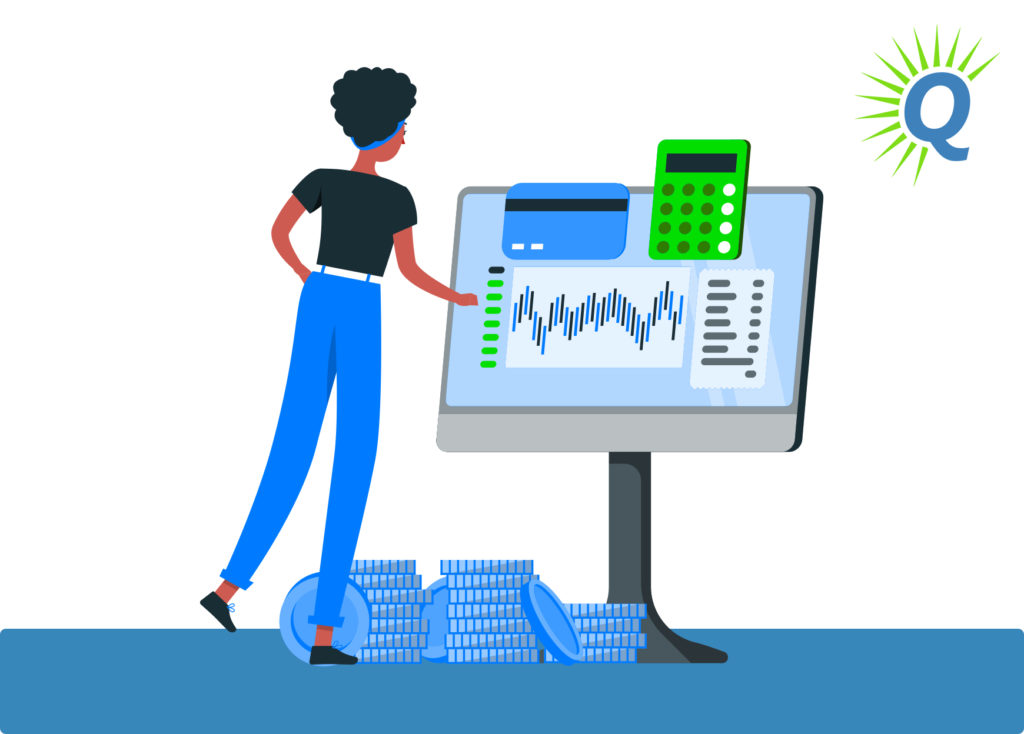Topics:
Never Miss a Beat - Get Updates Direct to Your Inbox
FILTER:


Advantages & Limits of Business Valuation Calculators
By Quiet Light
Your business is likely your most valuable asset, so shouldn’t you know how much it’s worth? To determine the market value of online businesses, some owners are tempted to rely on business valuation calculators. While such tools are easy to use, they can often grossly overestimate or underestimate your business’s true value.
This article discusses:
- How the business valuation process works
- The factors that impact business valuation
- The pros and cons of using a business valuation calculator


How to Calculate the Value of a Business
The business valuation method that is most common for online businesses is the SDE multiple method. As the term implies, there are two basic elements in this equation: SDE and the multiple.
“Your business is likely your most valuable asset, so shouldn’t you know how much it’s worth?”
Seller’s Discretionary Earnings
Seller’s Discretionary Earnings (SDE) are the pre-interest, pre-tax profits that a business generates before accounting for non-cash expenses, one-time investments, one owner’s benefit, and any other discretionary expenses or non-related income. If a new business owner will need to incur additional expenses after the acquisition, SDE may require a further adjustment.
In simplified language, SDE is the total amount of money that a business earns for a single owner. The reason to use SDE as opposed to net profit is due to the fact that SDE removes expenses that won’t necessarily transfer to a new owner, thereby revealing what a business truly earns. This makes SDE an important element in comparable company analysis.


Although a business’s financial statements determine SDE, it is far from straightforward. For example, knowing what does and does not qualify as a discretionary expense requires expertise that a calculator simply can’t offer.
“In simplified language, SDE is the total amount of money that a business earns for a single owner.”
The Multiple
Once you calculate SDE, it’s multiplied by ‘the multiple’ to determine the value of your business.
The multiples for online businesses vary dramatically. This makes it impossible to ‘guestimate’ based on looking at just a couple of basic financial metrics. Valuation calculators may be able to do simple multiplication, but there’s no way they can consider your business’s growth opportunities, documentation practices, or other key elements that buyers look for.
Factors that Go into Business Valuation
There are numerous variables that affect the value of your business, but they all fall into one of four primary factors. We call these the Four Pillars of Value. The Four Pillars include:
- Growth
- Risk
- Transferability
- Documentation


Growth
Your business’s growth rate plays a significant role in determining its expected future cash flow and value. Not surprisingly, buyers tend to look for businesses that show promising signs for the future ahead.
If your business has been steadily growing for the past twelve months, it will be more valuable than if your SDE is flatlining or in decline. This is especially true for younger businesses that are expected to have strong growth trends.
“Not surprisingly, buyers tend to look for businesses that show promising signs for the future ahead.”
In addition to past growth, your business’s prospects for growth also play an important role. For example, if you have an Amazon business that is ready to launch several new products, your business will be worth more than if it has no growth plan in place.
Risk
Risks reduce business worth. If your business faces significant competitive threats or has single points of failure, it will be worth less. No one wants to acquire an asset that will produce lower future earnings. On the other hand, if your business is defensible and has diverse revenue streams, it will be more stable, and in turn, more valuable.


Transferability
Transferability is one of the valuation factors that valuation calculators have the most difficult time taking into account. However, the ease with which your business can transfer to a new owner plays a significant role in determining business and website value.
If your business can easily transfer to a new owner, it will be significantly more valuable than one that has transferability barriers. Therefore, it’s important to plan ahead to ensure that your business doesn’t require your personal involvement in order to succeed.
Documentation
Documentation is the fourth pillar that determines your business’s book value. If your business has solid bookkeeping practices, detailed Standard Operating Procedures (SOPs), and well-organized records, your business will be more valuable.
One reason that documentation is important is due to the visibility that it provides. If a potential buyer can easily understand what’s happening in your business (i.e. cost of goods sold, annual sales, cash flow, gross profit, etc.) they’ll be much more likely to feel comfortable moving forward. Additionally, when your documentation practices are sound, it’s easier for buyers to step in and succeed following the acquisition.


By looking carefully at each of these four pillars in your business, a skilled business Advisor or business broker can determine the fair market value of your business. Additionally, an accurate valuation can provide you with key insights to improve your small business prior to the sale, providing an additional valuation purpose that calculators can’t offer.
“When your documentation practices are sound, it’s easier for buyers to step in and succeed following the acquisition.”
Pros and Cons of Using a Business Valuation Calculator
The main ‘pro’ of business valuation calculators is that they’re quick and easy to use. All you have to do is answer a few basic questions, and they spit out a number. Unfortunately, that number is often inaccurate…
Simply stated, a business calculator cannot capture the unique qualities and nuance that your business encompasses. Even if (and that’s a big “if”) you’re able to establish a correct SDE to apply to valuation formulas, an online calculator can’t analyze and account for factors such as:
- Your growth strategy
- The stability of your supply chain
- How defensible your brand is against your competitors
- What untapped marketing opportunities exist
- How well-organized your documentation is
- The story and values of your business


Since valuation calculators aren’t able to account for these elements, their accuracy is extremely limited, leaving you without a clear market-based business valuation estimate. Additionally, although they can provide a number, you’re left without any clear direction on how to increase business value.
“A business calculator cannot capture the unique qualities and nuance that your business encompasses.”
When you get a free business valuation from a qualified Advisor, they analyze every possible aspect of your business to ensure you understand its true present value. If you decide you’re not ready to sell, they also provide you with a clear roadmap so you know exactly where you should focus your efforts for your future exit.
Thinking of Selling Your Business?
Get a free, individually-tailored valuation and business-readiness assessment. Sell when you're ready. Not a minute before.





